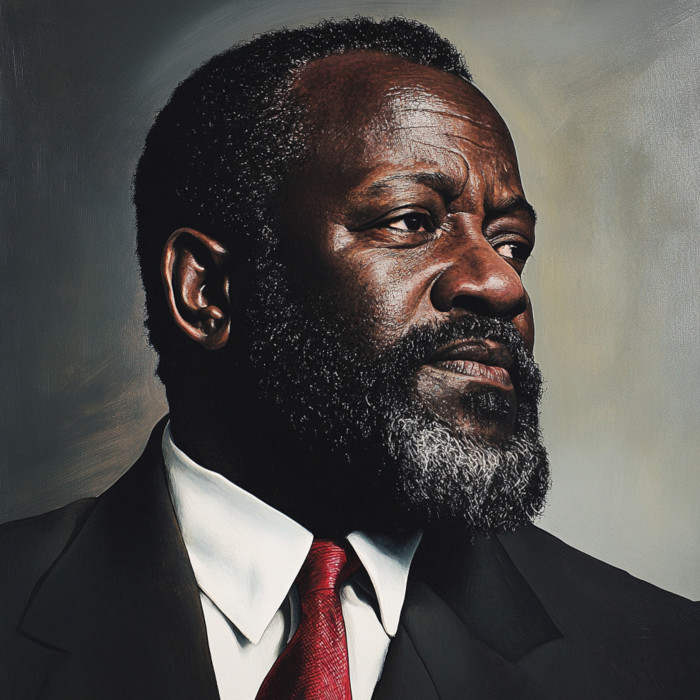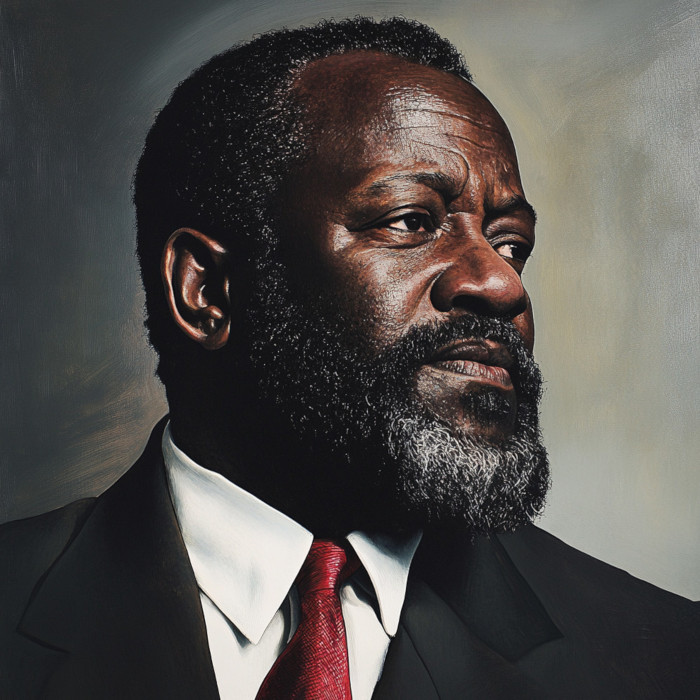


Jonas Savimbi (1934–2002) was an Angolan political and military leader who founded and led the National Union for the Total Independence of Angola (UNITA), a prominent rebel movement that played a central role in Angola's long and brutal civil war. Savimbi was a highly controversial figure, viewed by some as a freedom fighter against communist rule and by others as a warlord whose actions prolonged the suffering of millions of Angolans. His life and legacy are deeply intertwined with Angola's history, particularly its struggle for independence and the decades of conflict that followed.
Birth and Background: Jonas Malheiro Savimbi was born on August 3, 1934, in Munhango, a village in the Bié Province of central Angola, then a Portuguese colony. He was born into the Ovimbundu ethnic group, the largest in Angola, which would later become the base of support for his political and military endeavors. Savimbi's father was a stationmaster and a member of the Protestant church, which influenced Savimbi's early education and religious upbringing.
Education: Savimbi was an excellent student and received a scholarship to study in Portugal, where he attended the University of Lisbon. He studied medicine briefly before switching to political science. His time in Portugal exposed him to the ideologies of African nationalism and anti-colonialism, which were gaining momentum across the continent. Savimbi also studied in Switzerland, where he further developed his political ideas and networked with other African liberation leaders.
Early Involvement in Angolan Nationalism: Savimbi initially joined the Popular Movement for the Liberation of Angola (MPLA), a Marxist-oriented group fighting for Angolan independence from Portuguese colonial rule. However, he became disillusioned with the MPLA's leadership and their policies, particularly their close alignment with the Soviet Union. In 1966, after splitting from the MPLA, Savimbi founded the National Union for the Total Independence of Angola (UNITA).
Founding of UNITA: UNITA was established as an anti-colonial and anti-communist movement, with a strong base among the Ovimbundu people in central and southern Angola. Unlike the MPLA, which was primarily supported by urban intellectuals and had Soviet and Cuban backing, UNITA drew its support from rural areas and aligned itself with Western powers, particularly the United States, and later apartheid South Africa, which saw UNITA as a bulwark against the spread of communism in southern Africa.
Role in the Civil War: Angola gained independence from Portugal in 1975, but the country quickly descended into a civil war, with the MPLA, UNITA, and the National Front for the Liberation of Angola (FNLA) vying for control. The MPLA, with support from the Soviet Union and Cuban troops, took control of the capital, Luanda, and declared itself the legitimate government of Angola. However, Savimbi's UNITA, backed by the United States, South Africa, and China, continued to wage a guerrilla war against the MPLA-led government.
Military Leadership: Savimbi proved to be a skilled and charismatic military leader, using guerrilla tactics to challenge the MPLA forces. Under his leadership, UNITA controlled large swathes of Angola’s countryside and engaged in protracted battles with government forces. The conflict was marked by brutal violence on all sides, with widespread human rights abuses, including massacres, forced recruitment of child soldiers, and the use of landmines, which devastated the Angolan population and infrastructure.
Cold War Dynamics: The Angolan civil war became a proxy battleground in the Cold War, with the MPLA supported by the Soviet Union and Cuba, and UNITA receiving aid from the United States, South Africa, and China. This external support sustained the conflict for decades, contributing to the immense suffering of the Angolan people and the destruction of the country’s economy and infrastructure.
Post-Cold War and Peace Attempts: After the Cold War ended, international support for UNITA waned, and several peace agreements were attempted, including the Bicesse Accords in 1991 and the Lusaka Protocol in 1994. However, these agreements failed to bring lasting peace, as Savimbi continued to fight against the MPLA government, refusing to accept the political compromises required for a negotiated settlement.
Renewed Fighting and Decline: In the late 1990s and early 2000s, UNITA's fortunes declined as the Angolan government, now flush with oil revenues, intensified its military campaign against the rebels. UNITA's territory and resources dwindled, and international pressure mounted against Savimbi and his leadership.
Death: On February 22, 2002, Jonas Savimbi was killed in a firefight with government forces in the province of Moxico, in eastern Angola. His death marked the effective end of UNITA as a military force and paved the way for the signing of a ceasefire agreement in April 2002, which brought an end to the Angolan civil war after nearly 27 years of conflict.
Controversial Figure: Jonas Savimbi remains one of the most polarizing figures in Angolan and African history. To his supporters, he was a staunch anti-communist freedom fighter who resisted Soviet and Cuban influence in Angola and sought to liberate his country from authoritarian rule. To his detractors, he was a ruthless warlord whose refusal to compromise prolonged a devastating civil war that claimed the lives of hundreds of thousands of Angolans and left the country in ruins.
Impact on Angola: Savimbi's legacy is inextricably linked to the suffering and devastation caused by the Angolan civil war. The conflict left Angola with one of the highest rates of landmine contamination in the world, widespread poverty, and deeply entrenched political divisions. The war also contributed to the centralization of power in the MPLA and the establishment of a highly unequal society, where the benefits of the country’s vast oil wealth have been concentrated in the hands of a few.
Posthumous Reflections: In the years following his death, there have been efforts to re-evaluate Savimbi's role in Angolan history. While some view him as a national hero who fought for Angola's independence and against communist dictatorship, others see him as a tragic figure whose personal ambition and refusal to compromise led to immense suffering for the Angolan people.
Jonas Savimbi was a complex and controversial figure whose life and actions had a profound impact on Angola’s history. As the leader of UNITA, he played a central role in the Angolan civil war, a conflict that shaped the country’s post-independence trajectory. Savimbi’s legacy is deeply contested, reflecting the complexities of his leadership and the enduring scars left by the war he fought in. His death marked the end of an era in Angola, but the debates over his legacy continue to shape the country’s political and historical discourse.

We use cookies
We use cookies and other tracking technologies to improve your browsing experience on our website, to show you personalized content and targeted ads, to analyze our website traffic, and to understand where our visitors are coming from. Privacy Policy.